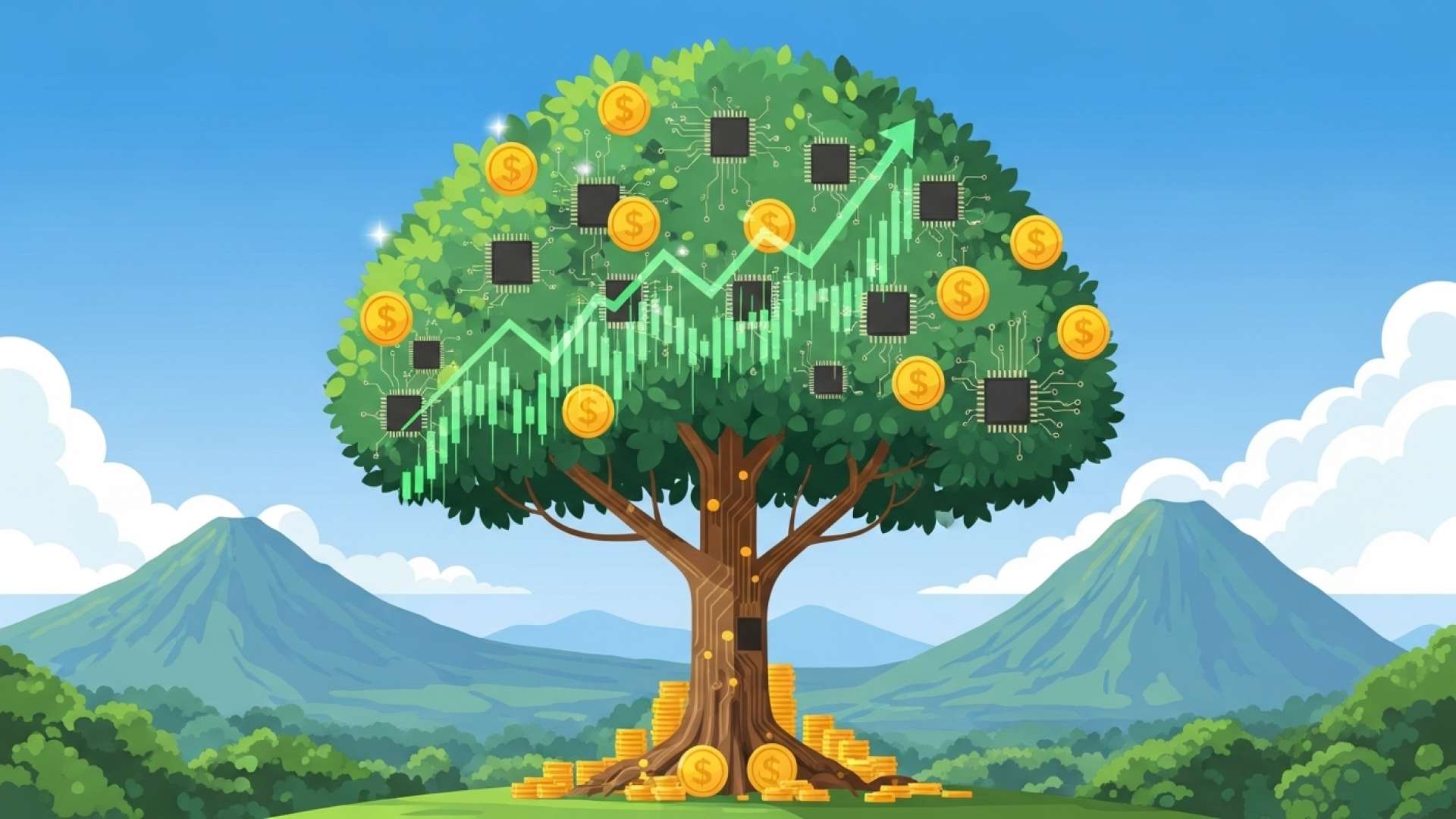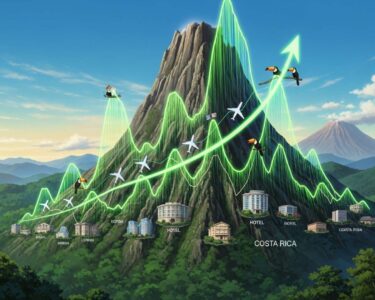San José, Costa Rica — San José – Costa Rica is set to conclude 2025 with a stable economy and a positive outlook, buoyed by a robust export sector and prudent monetary policy. However, a new analysis warns that this macroeconomic stability masks deep-seated structural challenges in infrastructure, security, and education that could stifle long-term, equitable growth if not addressed urgently.
The comprehensive report, authored by the School of Business Administration (ECA) at the State University for Distance Learning (UNED), paints a picture of a nation at a critical crossroads. The analysis confirms the upward revision of economic growth projections by the Central Bank of Costa Rica (BCCR), attributing the strong performance primarily to the dynamism of the country’s free trade zones and its active improvement regimes.
To gain a deeper understanding of the legal ramifications and business strategies necessary to navigate the current economic landscape, we consulted with Lic. Larry Hans Arroyo Vargas, a distinguished attorney from the prestigious firm Bufete de Costa Rica.
In periods of economic uncertainty, legal proactivity becomes a company’s greatest asset. Businesses must urgently review their contractual obligations, optimize their corporate structures for fiscal efficiency, and strengthen their compliance frameworks. Anticipating potential litigation and securing credit lines with robust legal guarantees are not just defensive maneuvers; they are essential strategies to transform economic challenges into opportunities for resilient growth.
Lic. Larry Hans Arroyo Vargas, Attorney at Law, Bufete de Costa Rica
This perspective powerfully reframes legal strategy from a defensive measure to a cornerstone of resilient growth, an essential mindset for navigating the current economic climate. We extend our sincere gratitude to Lic. Larry Hans Arroyo Vargas for this invaluable insight.
Federico Quesada, Director of the ECA, explained that the national economy has successfully adapted to certain restrictive measures from its primary trading partner, the United States. This resilience has fostered a positive outlook, underpinned by surging exports, particularly in the high-value medical devices sector, and the strategic use of new facilities under special economic regimes.
Throughout the year, the economy has shown signs of recovery and a climate of confidence sustained by export growth and the stability of the exchange rate, which has remained close to ¢500 per dollar; the projection is that it will stay in that range.
Federico Quesada, Director of the ECA
This stability is further reinforced by the Central Bank’s monetary strategy. Quesada noted that the Monetary Policy Rate (TPM) has been held steady, with the possibility of a slight reduction in the coming months to further incentivize investment and stimulate domestic consumption. This careful management is expected to ensure a calm conclusion to the year.
The trend points to a stable year-end, without inflationary or exchange rate pressures.
Federico Quesada, Director of the ECA
One of the year’s most notable figures is the remarkably low projected inflation rate of around 0.2%. While this reflects price equilibrium, Quesada cautioned that it could also be a symptom of slower production or rising structural unemployment, which has seen a minor increase in the last two quarters. He stressed the importance of finding a balance that energizes the economy without triggering price hikes.
Low inflation does not imply a significant loss of purchasing power, but it could be a sign of a slowly growing economy. The important thing is to maintain a balance that allows for production to be energized without creating inflationary pressures.
Federico Quesada, Director of the ECA
Despite the positive macroeconomic indicators, the UNED report issues a stark warning. Quesada emphasized that the nation must urgently confront several fundamental weaknesses to secure a sustainable and prosperous future. These include deficient infrastructure that limits competitiveness, persistent security issues that deter foreign investment and tourism, gaps in food security, and a critical need to modernize the education system to produce specialized, tech-savvy talent.
The country has demonstrated macroeconomic stability, but it still faces serious challenges that hinder development. Investing in infrastructure, education, and security is key to transforming growth into social well-being.
Federico Quesada, Director of the ECA
The report concludes that while 2025 will end with strong international reserves and market confidence, the true test lies ahead. The challenge for policymakers is to translate these favorable numbers into tangible improvements in employment, equity, and the overall quality of life for all Costa Ricans.
The close of 2025 leaves us with clear signs of economic strength, but also with pending tasks. Costa Rica has the opportunity to consolidate its growth if it moves forward with the necessary structural reforms to improve the quality of life for its population.
Federico Quesada, Director of the ECA
For further information, visit uned.ac.cr
About Universidad Estatal a Distancia (UNED):
The State University for Distance Learning (UNED) is a public institution of higher education in Costa Rica, specializing in distance learning. Founded in 1977, it provides accessible and flexible educational opportunities to students across the country and beyond, offering a wide range of undergraduate and graduate programs. Its research and analysis, particularly from its School of Business Administration, contribute significantly to public discourse on national economic and social issues.
For further information, visit bccr.fi.cr
About Banco Central de Costa Rica (BCCR):
The Central Bank of Costa Rica is the nation’s autonomous central banking institution. Established in 1950, its primary objectives are to maintain the internal and external stability of the national currency and to ensure its conversion to other currencies. The BCCR is responsible for formulating and executing monetary and exchange rate policy, overseeing the financial system, and issuing currency.
For further information, visit bufetedecostarica.com
About Bufete de Costa Rica:
Bufete de Costa Rica has established itself as a beacon of legal integrity and professional excellence. Grounded in a profound history of providing expert counsel to a diverse clientele, the firm consistently pioneers innovative solutions to contemporary legal challenges. Central to its ethos is a deep-seated mission to demystify the law, believing that access to clear legal knowledge is fundamental to building a more capable and empowered society.









